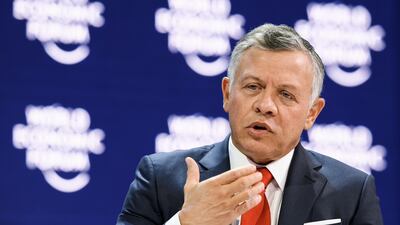Jordan's King Abdullah II on Friday ordered the government to freeze proposed increases to fuel and electricity prices that triggered protests across the country.
Past price hikes have triggered riots in Jordan, a country of 9.5 million with few resources, burdened by poverty and unemployment.
The plan for further increases prompted the country's first nationwide strike in decades on Wednesday. Late on Thursday and early Friday, hundreds of Jordanians demonstrated in Amman and other cities, calling for the "fall of the government" as they blocked roads with cars and burning tyres.
They were angered by the government's plan to raise fuel prices by up to 5.5 per cent and a 19 per cent hike in electricity prices, as well as a proposal for a new income tax.
But the king ordered the government to shelve the increases set to take effect on Friday as the country observes the Muslim holy month of Ramadan, the official Petra news agency said.
In a statement run by Petra, Prime Minister Hani Mulki said the price hikes would be frozen for the current month upon the directives of King Abdullah.
_______________
Read more:
Jordan protests against price rises signal growing resentment
Jordan government stronger after vote of no confidence failed
Schools for Jordan's poorest struggle to survive
_______________
Price have steadily risen in Jordan over recent years as the cash-strapped government pushes reforms demanded by the International Monetary Fund.
The country has a public debt of about $35 billion (Dh129bn), equivalent to 90 per cent of its gross domestic product.
In 2016, it secured a $723 million three-year credit line from the IMF to support economic and financial reforms and was told it must drop subsidies and raise taxes to meet conditions for future loans.
Earlier this year, Jordan as much as doubled bread prices after dropping subsidies on the staple, as well as hiking value-added taxes on several goods including cigarettes.
The price of fuel has risen on five occasions since the beginning of the year, while electricity bills have shot up 55 per cent since February.

According to official estimates, 18.5 per cent of the population is unemployed, while 20 per cent are on the brink of poverty.
More than 1,000 demonstrators rallied outside the prime minister's office in central Amman late on Thursday, chanting: "The people want the government to fall."
In the northern cities of Irbid and Ajlun, some protesters cut off roads with burning tyres, while in the Tabarbur suburb of Amman motorists blocked roads with their cars.







